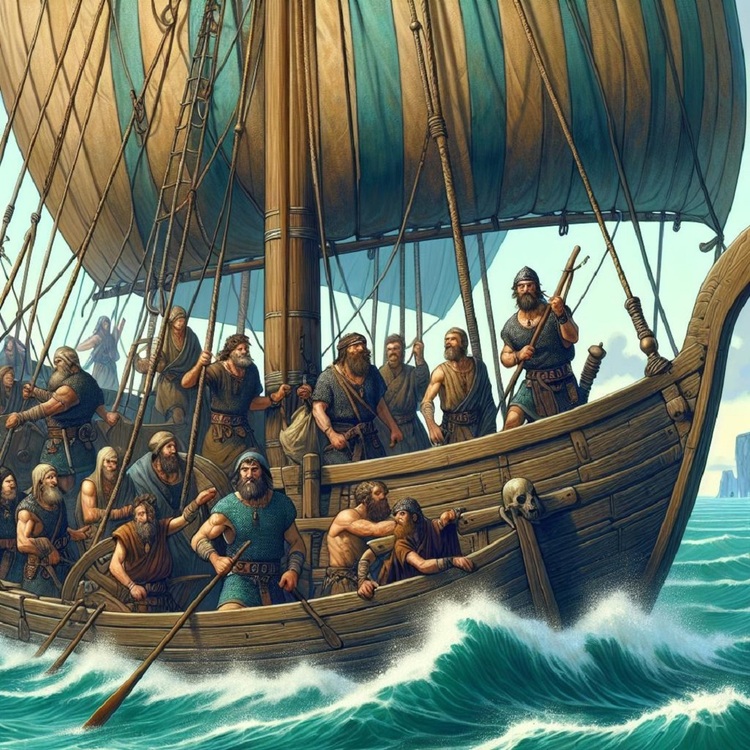
35. Special Exhibition - Ancient Pirates
Ancient pirates were seafaring raiders who plundered ships, coastal settlements, and trade routes across the Mediterranean, Adriatic, Black Sea, and beyond.
Among the earliest known pirates were the Lukka and Sherden, mentioned in Egyptian records as maritime raiders of the Late Bronze Age. The Sea Peoples followed, wreaking havoc on ancient civilizations, while groups like the Cilician pirates captured Julius Caesar and terrorized Roman trade. In the Black Sea, Scythian pirates targeted Greek colonies, and Illyrian pirates disrupted Adriatic commerce, prompting Rome to intervene. The Tyrrhenian pirates were notorious in early Italy, and Viking raiders, though later in history, extended piracy into northern Europe.
Even the Crusaders, often romanticized for religious motives, engaged in acts akin to piracy, looting coastal cities for supplies. Exploiting instability, these pirates—whether motivated by survival, conquest, wealth or religion—shaped naval warfare and disrupted the foundations of ancient and medieval trade networks.
-
TOP ROW - Pulpit Chair
-
TOP ROW - Birchbark Canoe
-
TOP ROW - Soapbox Race Car
-
TOP ROW - "Wonder Pony" Rocking Horse
-
TOP ROW - Salute Gun
-
TOP ROW - Armor
-
TOP ROW - Virginia Bells
-
TOP ROW - Grandfather Clock
-
TOP ROW - Wringer Washer
-
TOP ROW - Lincoln Desk
-
TOP ROW - Peck Stained Glass
-
TOP ROW - Grand Prairie School Bell
-
TOP ROW - Television Tube Tester
-
MIDDLE ROW - Studio Camera
-
MIDDLE ROW - Regal Oak Stove
-
MIDDLE ROW - Cylinder Phonograph
-
MIDDLE ROW - One Hour Valet Sign
-
MIDDLE ROW - Trial Lens Cabinet
-
MIDDLE ROW - Reed Organ
-
MIDDLE ROW - Field Cradle
-
MIDDLE ROW - String Quilt Top
-
MIDDLE ROW - Lady Justice Statue
-
MIDDLE ROW - Columbia High-Wheel Bicycle
-
MIDDLE ROW - Projection Screen Television
-
BOTTOM ROW - Coffee Bin
-
BOTTOM ROW - Trade Sign, Gilmore Enterprises
-
BOTTOM ROW - Suitcase
-
BOTTOM ROW - Douglass Community Exterior Sign
-
BOTTOM ROW - Sled
-
BOTTOM ROW - FREE 2B ME, sign
-
BOTTOM ROW - Bust of Leta Snow
-
BOTTOM ROW - Apple II Plus Computer